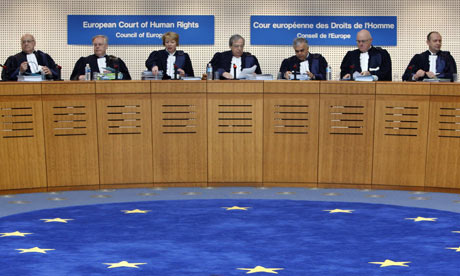
Medvedev Discards the Ambition of “Energy Super-Power”
Publication: Eurasia Daily Monitor Volume: 7 Issue: 45
By:

Upon his return from the trip to Paris last week, President Dmitry Medvedev held a meeting with Deputy Prime Minister, Igor Sechin, who is supervising the energy sector, and expressed satisfaction about world oil prices that are expected to stay above $80 per barrel (Rossiyskaya Gazeta, March 4). Not that Medvedev needed that information, which is just a wishful estimate, but he obviously wanted to show that he could summon one of Prime Minister Vladimir Putin’s closest minions and make him say “Yes, Mr. President. We will do this without fail.” Russia’s feeble recovery remains so dependent upon the petro-revenues that for Medvedev it is imperative to demonstrate that he is keeping the oil and gas industries under control.
Addressing French business leaders, Medvedev ventured a proposition that “economic growth fueled by commodities exports, if it has not already exhausted its potential, is no longer so relevant for us whatever the case today.” He maintains the emphasis on “modernization,” but this course is floundering because even the stubbornly optimistic Anatoly Chubais, who now manages the Rosnano high-tech corporation, cannot mobilize sufficient investment power (Vedomosti, March 4). Some adventurous Western money has returned to take its chances on the Russian stock exchange, yet the outflow of direct foreign investments continues (www.gazeta.ru, March 3). This trend could only be reversed if the Russian energy sector begins to generate massive profits again, though such a perspective remains in the “too-good-to-be-true” category.
The oil industry is actually performing above expectations, but Gazprom is facing serious problems and has not –despite a cold winter– restored its pre-crisis level of production. The company has finally admitted that its position on the pivotal European market is weakening while re-negotiating the long-term deals with its key counterparts, relaxing the “take-or-pay” condition and accepting spot-market prices for a part of the contracted volumes. The German E.ON was the first company to receive this preferential treatment, but now every consumer is demanding better terms (Kommersant, March 1). The inevitable result of this uncharacteristic flexibility is a fall in profits, while the finance ministry (supported by Sechin) demands more taxes from Gazprom (RBC Daily, March 4).
Reluctantly, making one concession after another, Gazprom’s management finds itself in the unfamiliar and uncomfortable territory of a “buyers market,” where its long-cherished principle of “security of supply” becomes nonsensical (Ekspert, March 1). Any other energy giant in such a crunch would have concentrated on investing in core assets and cutting down on operational costs; Gazprom is doing exactly the opposite. An investment decision on the off-shore Shtokman project has been postponed indefinitely, the work on developing the flagship Yamal project on the Bovanenkovskoe gas field is facing delays, yet the luxurious “Millerhof” palace outside Moscow has been decorated (www.gazeta.ru, March 5). What makes this self-destructive business strategy possible is the significant increase in prices for domestic customers, who are now paying more than US consumers for gas, but this trend cannot be sustained.
The key issue that Gazprom is facing now, however, is not Shtokman or energy efficiency, but the Ukrainian dilemma. Viktor Yanukovych, Ukraine’s newly-elected president is keen to normalize relations with Russia, which for him means first of all to re-negotiate the deal that resolved the gas crisis of January 2009 and secure a significant cut in gas prices, because his budget is in the deficit too deeply even by Greek standards. Paying a visit to Moscow last week, Yanukovych was eager to make every possible reconciliatory gesture, but the only trump card he could play was the control over Ukraine’s gas infrastructure (Nezavisimaya Gazeta, March 5). Selling the proposition for organizing an international consortium with Gazprom’s participation would not be easy, particularly with Yulia Timoshenko leading the opposition camp, but it does make solid economic sense (www.newsru.com, March 6).
What constitutes the second horn of this dilemma for Gazprom is that the modernization of Ukraine’s gas infrastructure would make the South Stream project redundant, because all the additional volumes that Southern Europe needs could be delivered without constructing a hugely expensive pipeline across the Black Sea. Gazprom is committed to the Nord Stream project in the Baltic Sea, which will inevitably require more funding than currently budgeted, so cancelling the hugely expensive South Stream might help to balance its books. The problem is that Putin continues to negotiate arrangements with potential partners, most recently Croatia, as if the South Stream is a done deal (Ekspert, 2 March).
Medvedev, with his eight years of experience as the chairman of Gazprom’s board, may understand the internal intrigues in this Leviathan company even better than Putin, and he knows who benefits from the deeply corrupt business of pipeline construction. He has to make sure that the decision to cancel the South Stream mega-project is his victory shared with Yanukovych and the EU partners, who could find it opportune to postpone the Nabucco enterprise. Any disagreement with Putin is certain to be sharp, but insightful oligarchs now find it possible to mention casually that the prime minister has incomplete and distorted information (Kommersant, March 2).
Putin is certainly a grandmaster of bureaucratic infighting, but he may take his position of power too much for granted. His recent demand to increase pensions by 6.5 percent was too populist even for veteran Finance Minister, Aleksei Kudrin, who duly –and in vain– pointed out that the federal budget went deeper into the red (Vedomosti, March 5). Public support for Putin’s paternalist rent-distribution model remains strong, and the understanding that petro-prosperity is over emerges only slowly, despite Medvedev’s efforts at mobilizing elite groups to become stake-holders in modernization. The only issue that makes Putin nervous is the case “Yukos versus Russia” that finally opened last week in the European Court of Human Rights (www.gazeta.ru, March 4; Novaya Gazeta, March 5). Unlike the openly farcical process against Mikhail Khodorkovsky and Platon Lebedev in Moscow, the international proceedings could put Putin on the spot, and he knows that he might be personally incriminated. Medvedev needs a series of strong moves in the not-great but still crucial energy game, however, he has to time it precisely.




